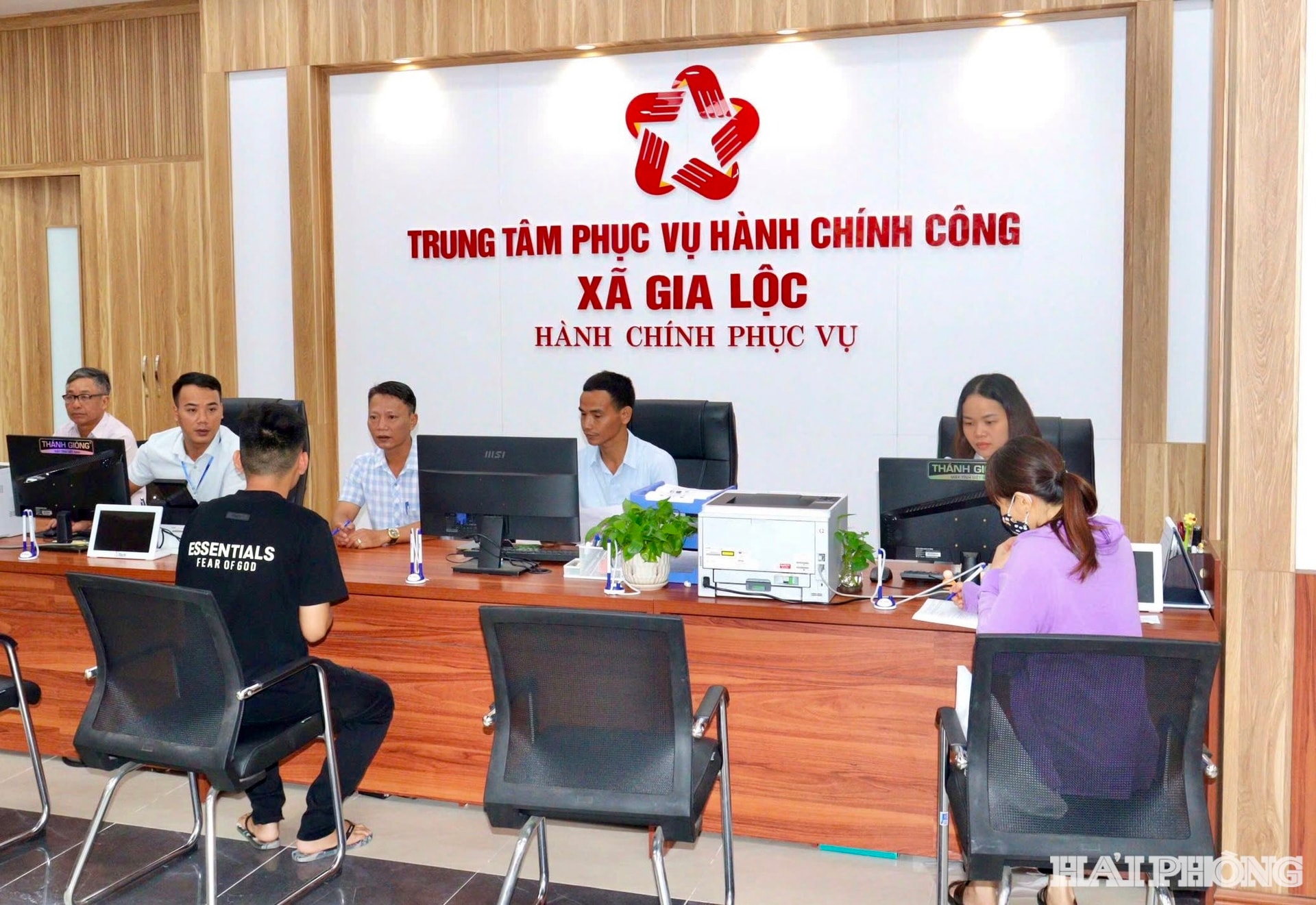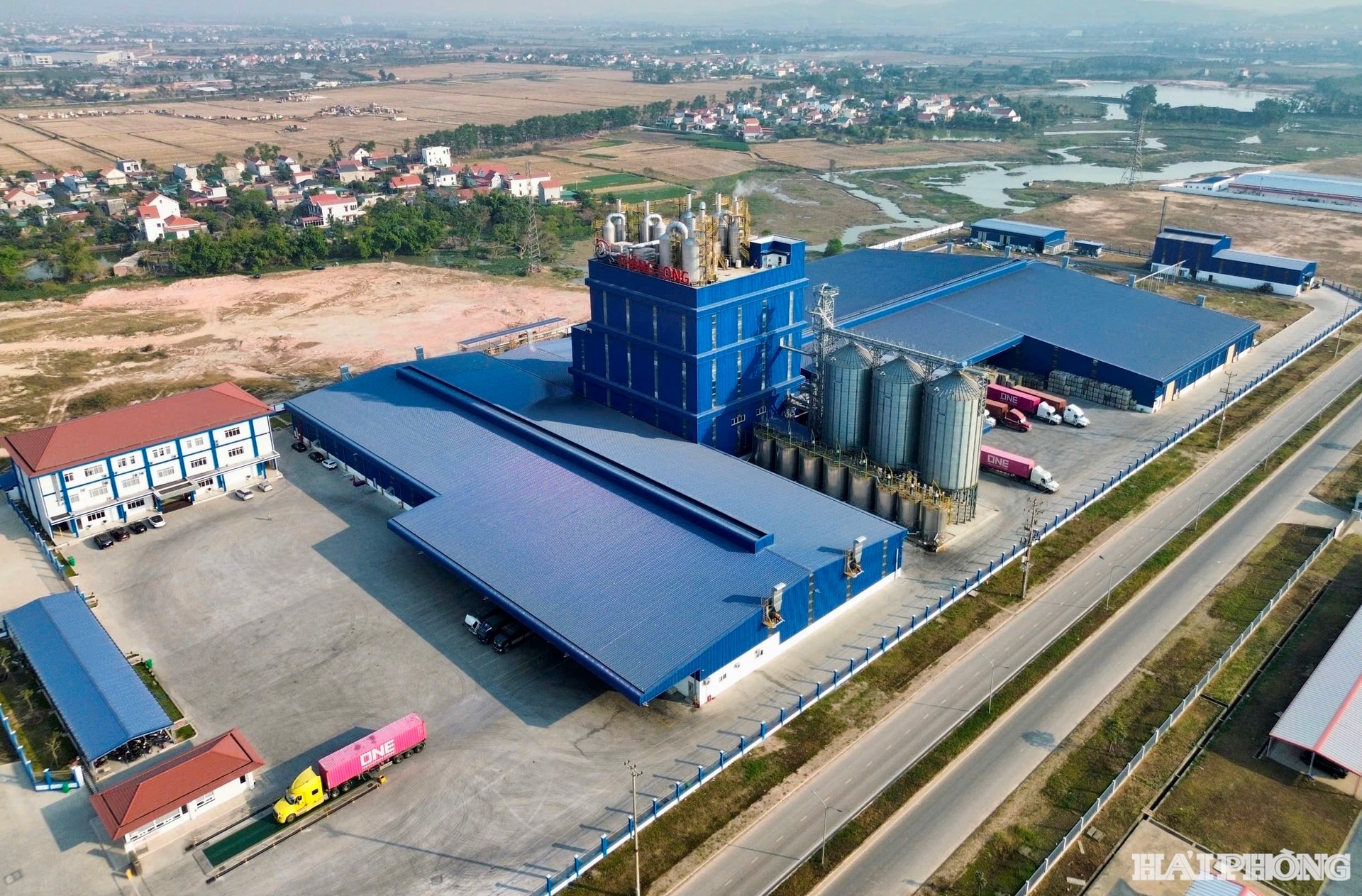The Hai Phong Party Committee’s Standing Board has issued an action plan to realize the Politburo’s Resolution 68, aiming to make breakthroughs and lay a solid foundation for the development of the private sector.

From breakthrough goals…
Shortly after the Politburo issued Resolution 68 on private sector development, the Hai Phong Party Committee quickly directed thorough dissemination of the resolution to the entire political system, business associations, entrepreneurs, and the public.
On July 25, 2025, the Standing Board of the city Party Committee issued an action plan closely aligned with the resolution’s orientation and the city’s specific conditions.
A highlight of Hai Phong’s plan is its ambitious and visionary targets. The city aims for the private sector to become the most important driver of the economy and a pioneering force in science and technology development, innovation, and digital transformation by 2030.
One specific goal is to have over 87,000 active enterprises, equivalent to more than 20 businesses per 1,000 residents. The average annual growth rate of the private sector is expected to reach 14.5 – 15%, higher than the city’s overall growth rate, contributing around 43 – 45% of GRDP.
Looking further ahead, Hai Phong envisions its private sector developing rapidly, strongly, and sustainably, actively participating in global production and supply chains, and contributing around 50 – 55% of GRDP by 2045.
The city also aims to be among the country’s top three private economic hubs by 2030. This goal reflects not only strategic vision but also the government’s roles of innovation and companionship, inspiring confidence and ambition in the business community and the public.
…to measures and actions

One of the key measures in the city’s plan is to accelerate administrative reform. In July, the city People’s Committee instructed departments, agencies, and the People’s Committees of communes, wards, and special zones to cut at least 50% of processing time for administrative procedures related to business activities and daily life.
The units must develop and issue internal and electronic processes for these streamlined procedures, to be completed and applied from August 2025. This demonstrates the city government’s strong determination and urgency in creating the most favorable environment for businesses.
To support enterprises, the city is studying the application of a “green lane” mechanism for certain investment, construction, and land-related procedures, to be completed by the second quarter of 2026.
The city will focus on digital transformation and transparent management processes, fully implementing digitization, smart systems, automation, and AI applications in administrative procedures.
Other measures aim to facilitate business access to resources. Hai Phong will complete citywide land data digitization and provide fully online public services to reduce land lease and certification processing times by at least 30%.
The city will also develop mechanisms to help businesses access credit and investment, while supporting training and development of high-quality human resources, especially in priority sectors such as industry, tourism, trade, and seaports.
Pham Trung Thai, Chairman of the Board of Directors of Vietnam Rubber Urban and Industrial Park Development JSC., the infrastructure investor of Cong Hoa industrial park in Tran Hung Dao ward, said: “The measures that Hai Phong has been implementing represent a strong commitment to supporting the local business community. I believe that with the determination to effectively realize the Politburo’s resolution, Hai Phong’s private enterprises in particular, and those nationwide in general, will further develop.”
The implementation of the Politburo’s Resolution 68, together with breakthrough policies in six fields and 41 special mechanisms under the National Assembly’s Resolution 226, will serve as a lever to help Hai Phong’s private sector thrive and affirm its position as one of the country’s economic engines.
LAN NGUYEN